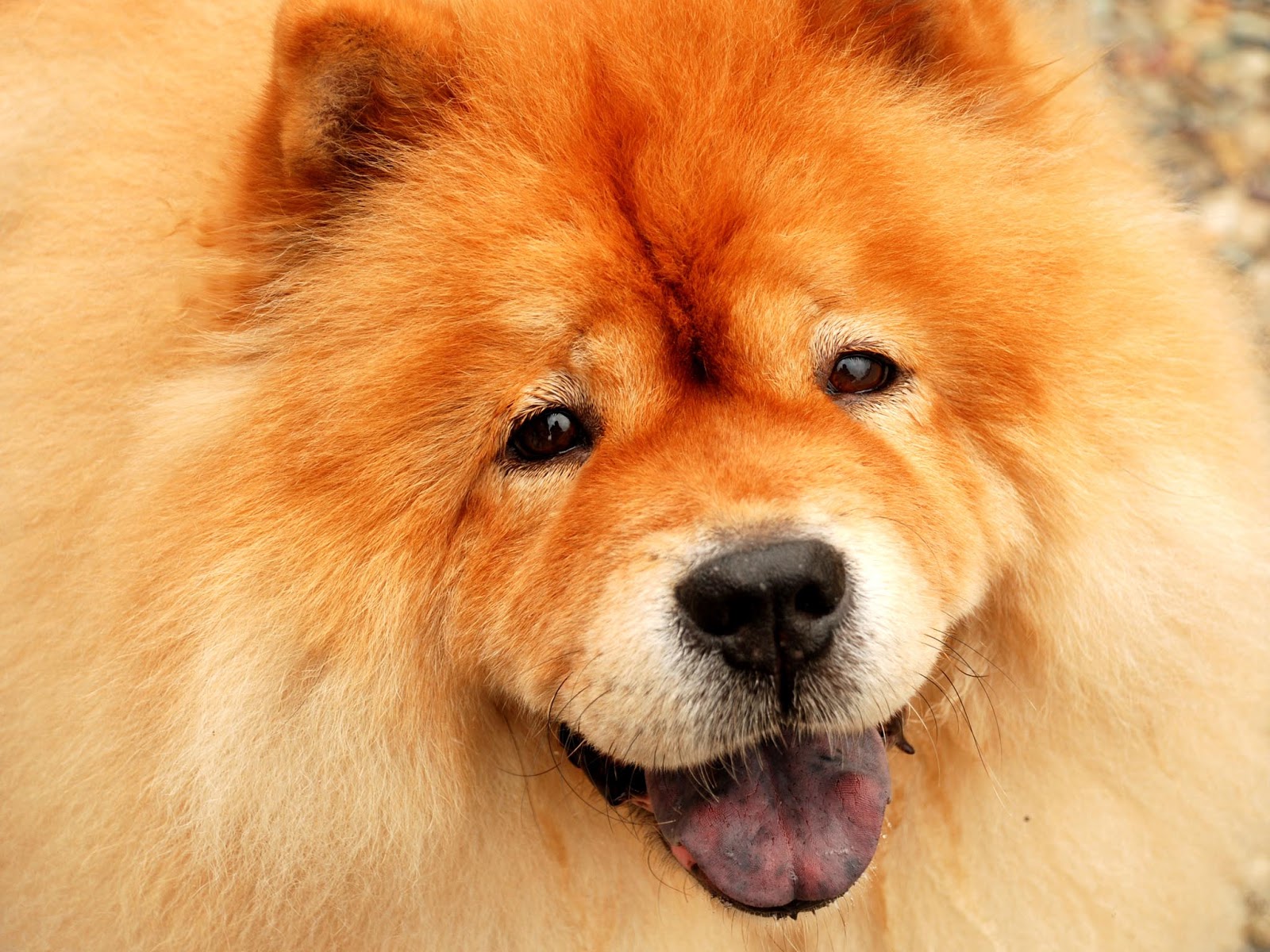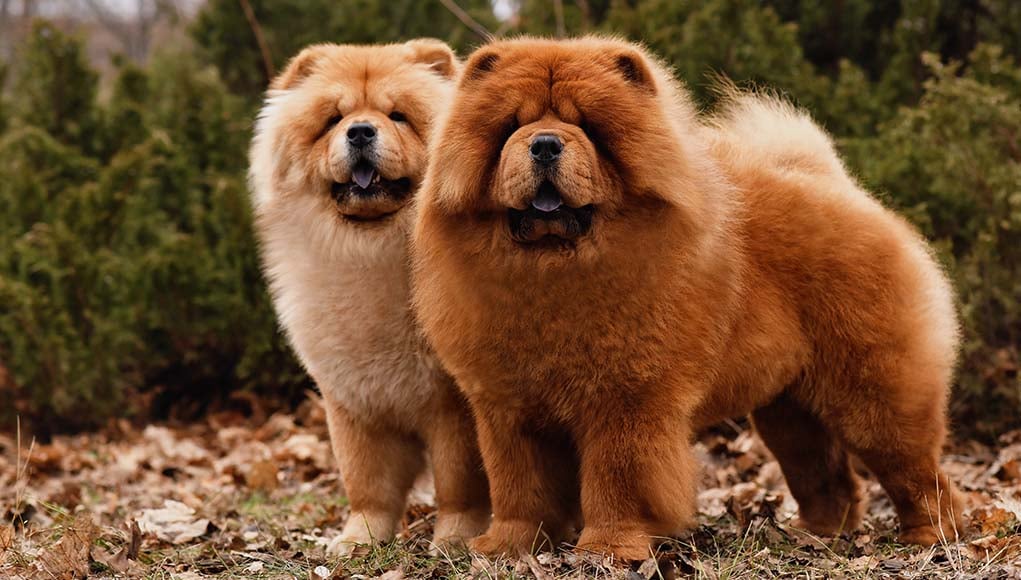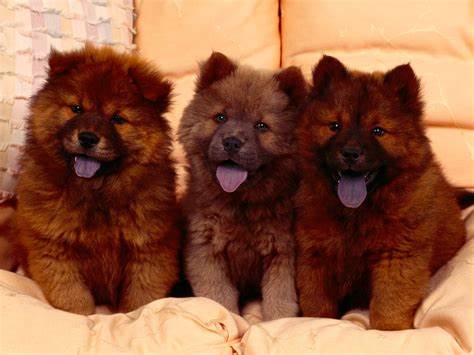
The Chow Chow is one of the oldest and most iconic dog breeds in the world, with origins tracing back over 2,000 years to northern China and Mongolia. Beloved by emperors and nobility, the breed served many roles throughout Chinese history, including hunting, guarding, sled pulling, and temple watch duty.
The Chow was known as the "Songshi Quan," meaning “puffy lion dog,” due to its fluffy coat and regal demeanor. It was introduced to the West in the late 18th century, and Queen Victoria’s fondness for exotic animals helped spark the breed’s popularity in England. The American Kennel Club (AKC) recognized the Chow Chow in 1903, and it has since maintained a reputation for dignity, independence, and loyalty.
The Chow Chow enjoys global popularity as a companion and show dog, admired for its lion-like mane, blue-black tongue, and aloof charm. While not as widely owned as some modern breeds, it has a strong following among those who appreciate its quiet strength and unique appearance.
The Chow is a medium to large, squarely built dog with a thick double coat and dignified, powerful stance.
• Coat: Comes in two types:
o Rough coat: Dense, fluffy, and stand-off with a pronounced mane.
o Smooth coat: Hard, short, and plush with a sleek appearance.
• Colors:
o Red, black, cream, cinnamon, and blue—all solid colors with no markings.
• Size:
o Height: 17–20 inches (43–51 cm)
o Weight: 45–70 lbs (20–32 kg)
• Head & Expression: Large, broad head with a scowling expression, deep-set eyes, and distinctive wrinkles.
• Ears: Small, triangular, and erect, giving the breed a constant look of alertness.
• Tail: Curled tightly over the back, covered in plume-like fur.
• Body: Compact, sturdy, and square-shaped with a unique stilted gait when walking.
The Chow Chow is best known for its independence, aloof nature, and strong sense of loyalty.
• Dignified and Reserved: Not a breed that seeks constant attention—quietly loyal rather than overtly affectionate.
• Aloof with Strangers: Naturally suspicious and territorial, making it an excellent watchdog.
• Strong-Willed and Independent: Has a mind of its own, often compared to a cat in behavior.
• Loyal to Family: Forms deep bonds with family members, often favoring one or two people.
• Calm and Low-Energy Indoors: Generally not destructive, hyper, or needy—prefers peaceful routines.

The Chow Chow is ideal for someone seeking a clean, dignified, and visually striking dog with a guarding instinct and stoic loyalty.
• Perfect for Quiet Homes: Thrives in structured environments with low chaos and firm boundaries.
• Minimal Barking: Doesn’t vocalize unnecessarily—only alerts when it’s truly needed.
• Natural Guardian: Instinctively protective without the need for training aggression.
• Distinct Appearance: No other breed looks like a Chow—its lion mane, blue-black tongue, and scowl are iconic.
• Independent Companion: For those who don’t need constant cuddles but value presence and poise.
The Chow Chow is relatively low-energy, but it needs consistent grooming, training, and early socialization.
• Training:
o Can be stubborn, so early, positive reinforcement is critical.
o Needs a confident and patient handler.
• Socialization:
o Must be introduced early to people, pets, and new environments to prevent reactivity or aggression.
• Exercise:
o Daily walks and light play are enough; not a high-energy breed.
o Avoid strenuous activity in hot weather, as the thick coat can cause overheating.
• Grooming:
o Rough coats require brushing several times a week to prevent mats.
o Smooth coats are easier to maintain but still benefit from regular brushing.
o Keep eyes, ears, and skin folds clean to avoid irritation.
• Nutrition:
o Feed a balanced diet and monitor weight—Chows can be prone to obesity.

The Chow Chow is generally healthy, but some breed-specific concerns include:
• Hip and Elbow Dysplasia
• Entropion (inward-rolling eyelids)
• Thyroid Issues (hypothyroidism)
• Patellar Luxation
• Heat Sensitivity
• Autoimmune Skin Disorders
Working with a reputable breeder and maintaining regular vet visits can help catch and manage these issues early.
Compared to the Akita, the Chow is less overtly aggressive but more aloof. While the Shiba Inu shares the independent nature, the Chow is larger and more stoic. Unlike the Samoyed or Husky, the Chow is calmer, quieter, and more reserved, but requires more socialization.
Its aloofness and unique personality make it better suited to experienced owners.
The Chow Chow is best suited for calm, confident, and experienced dog owners who value independence, loyalty, and beauty in a dog. It’s not a good match for homes with frequent visitors, small children, or those who want a highly affectionate or obedient dog.
If you’re looking for a dignified, watchful, and striking canine presence, the Chow Chow is a majestic and memorable companion.
United Pet Club can help you explore the world of the Chow Chow, from learning about care and grooming to connecting with responsible breeders or adoption networks.
Visit our platform to learn more about the breed’s history, temperament, and training, and take the next step in welcoming one of the world’s most iconic dogs into your home.